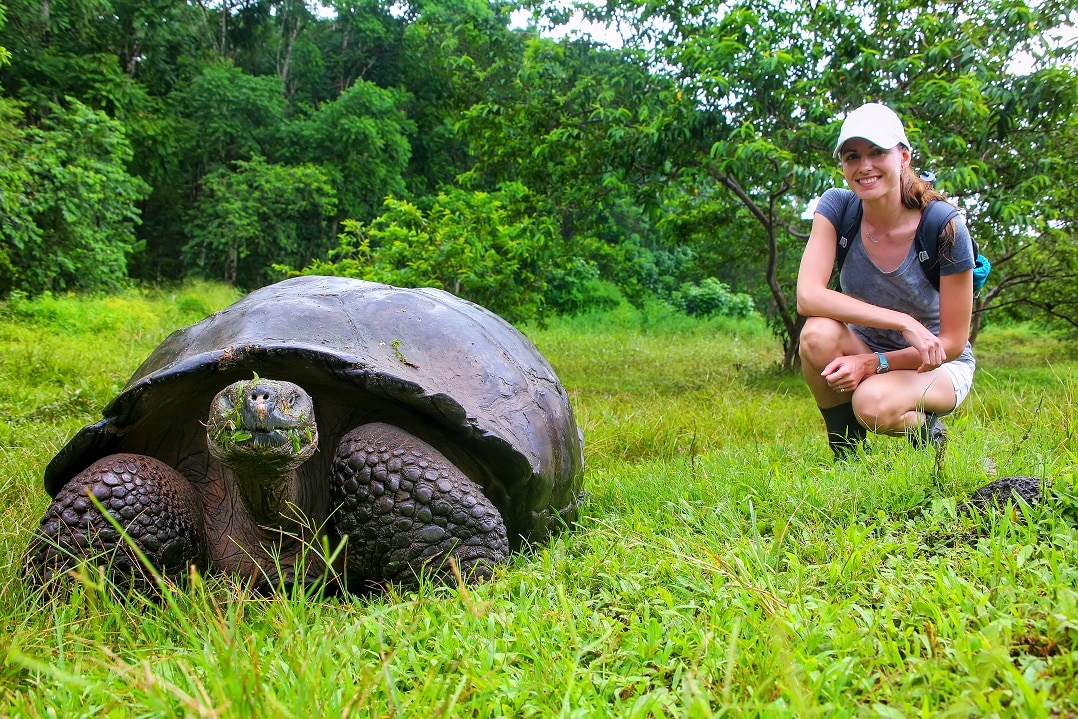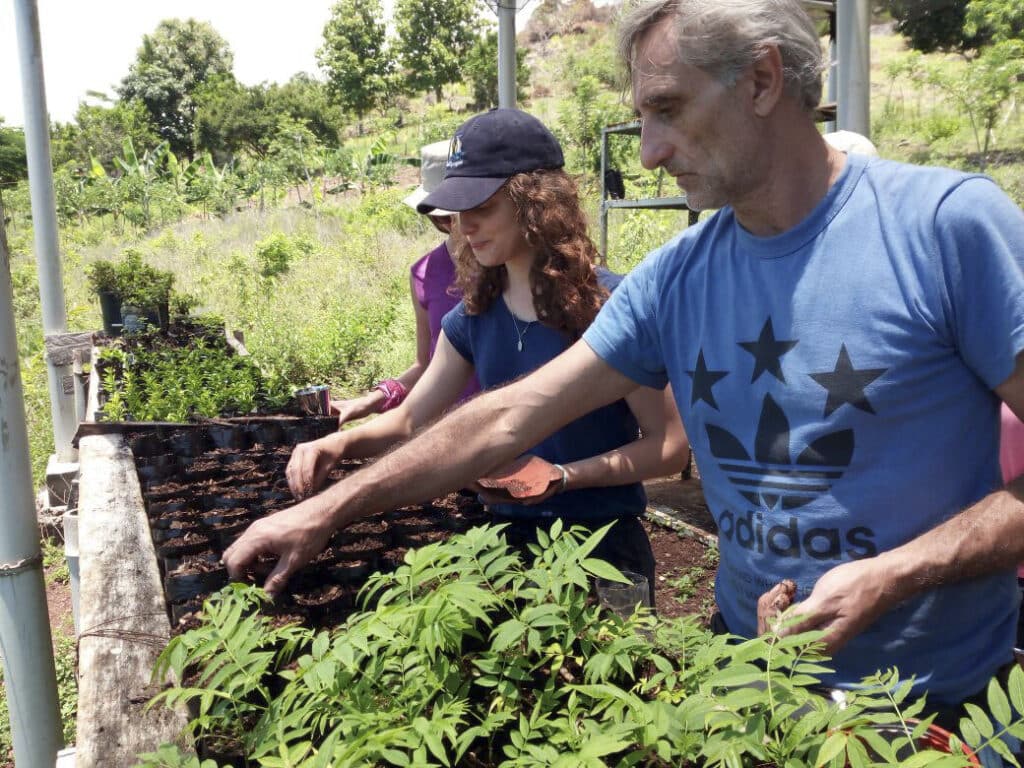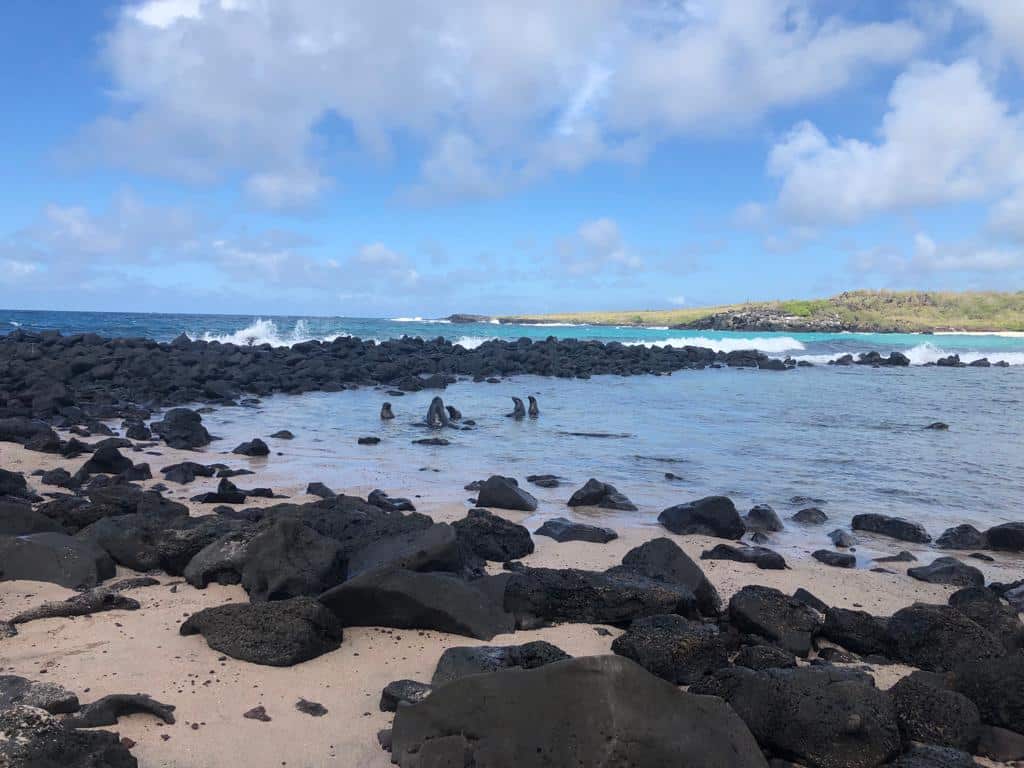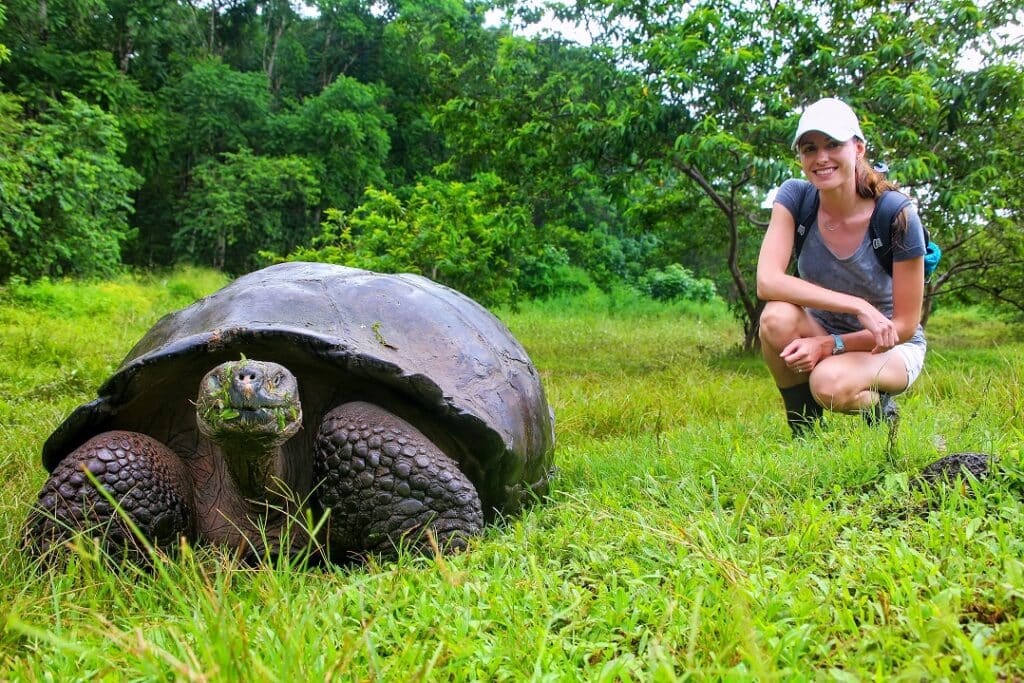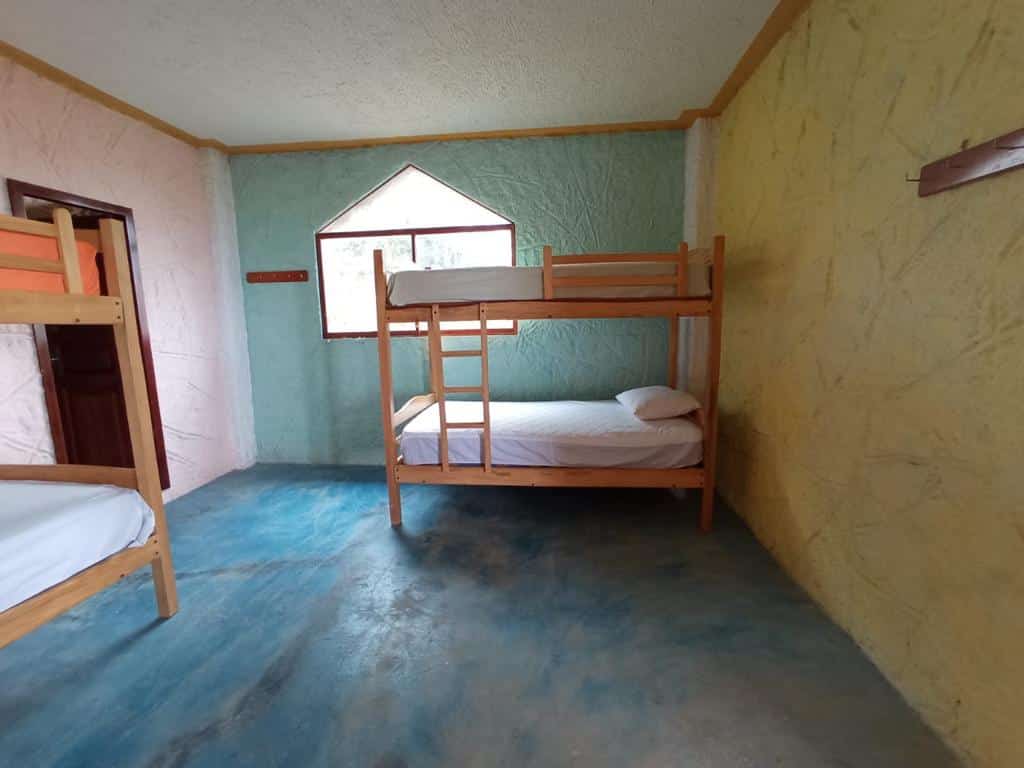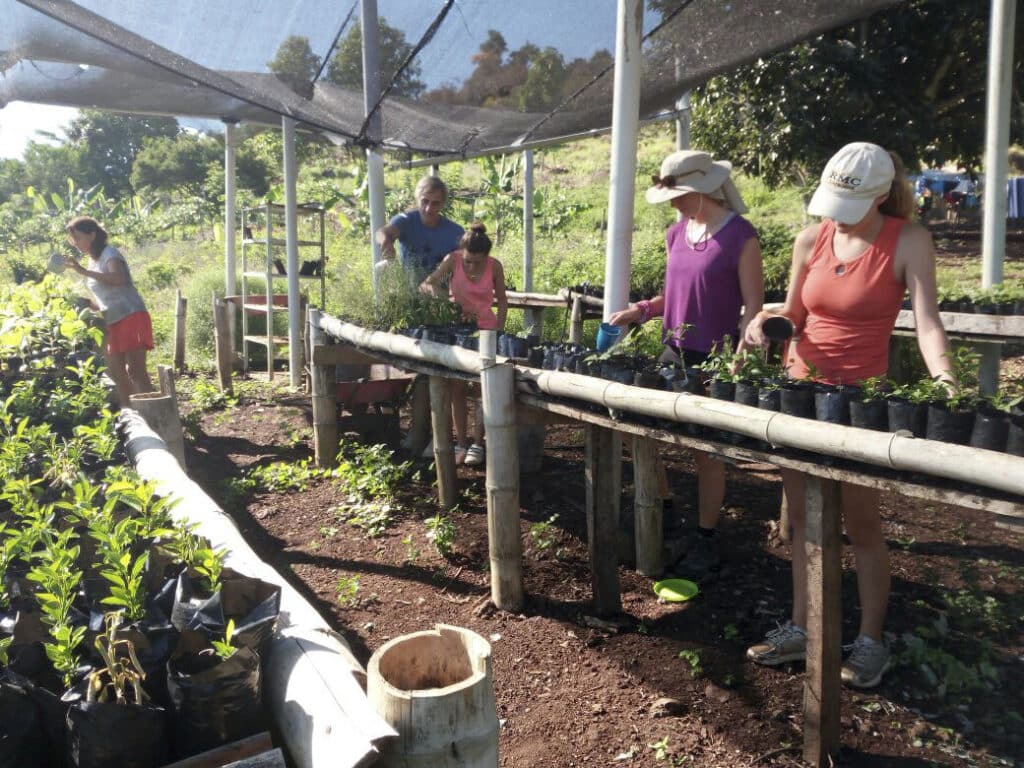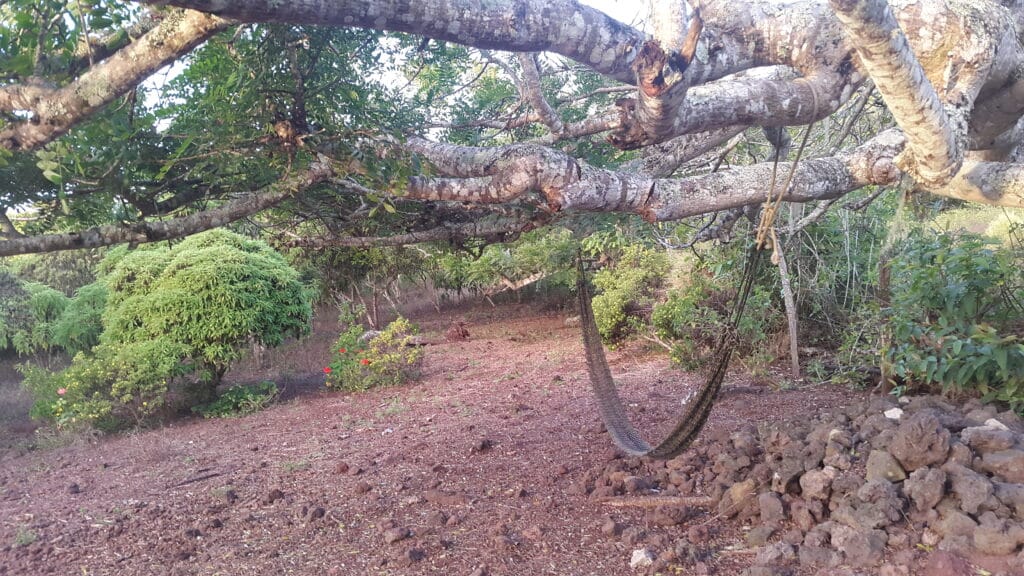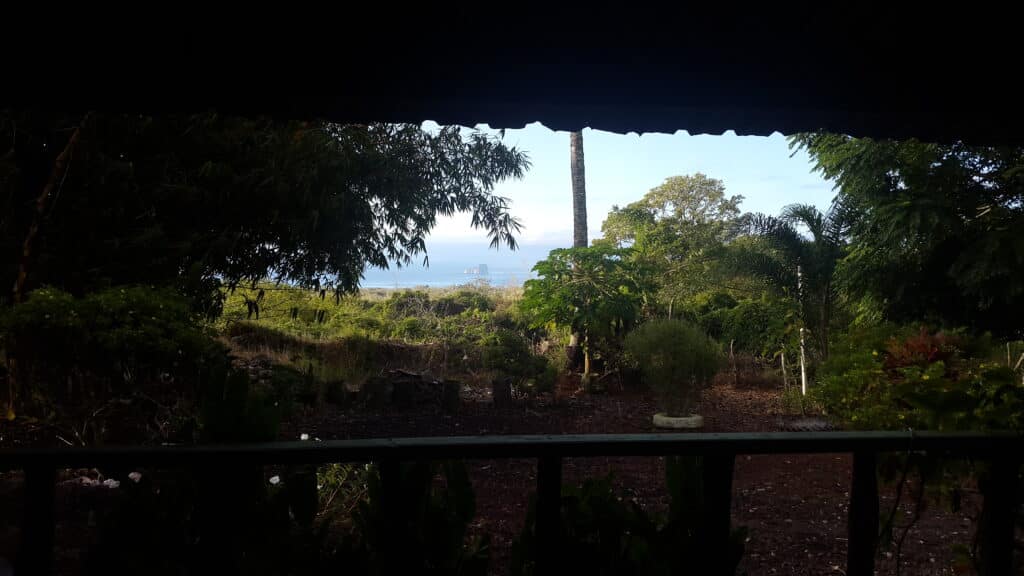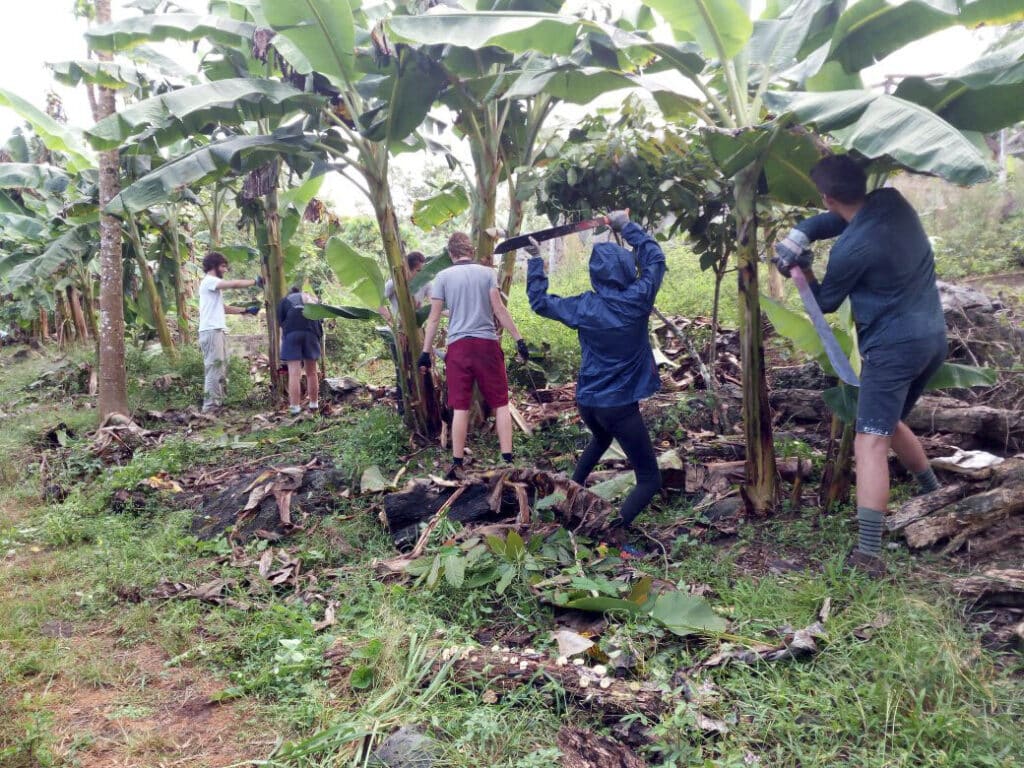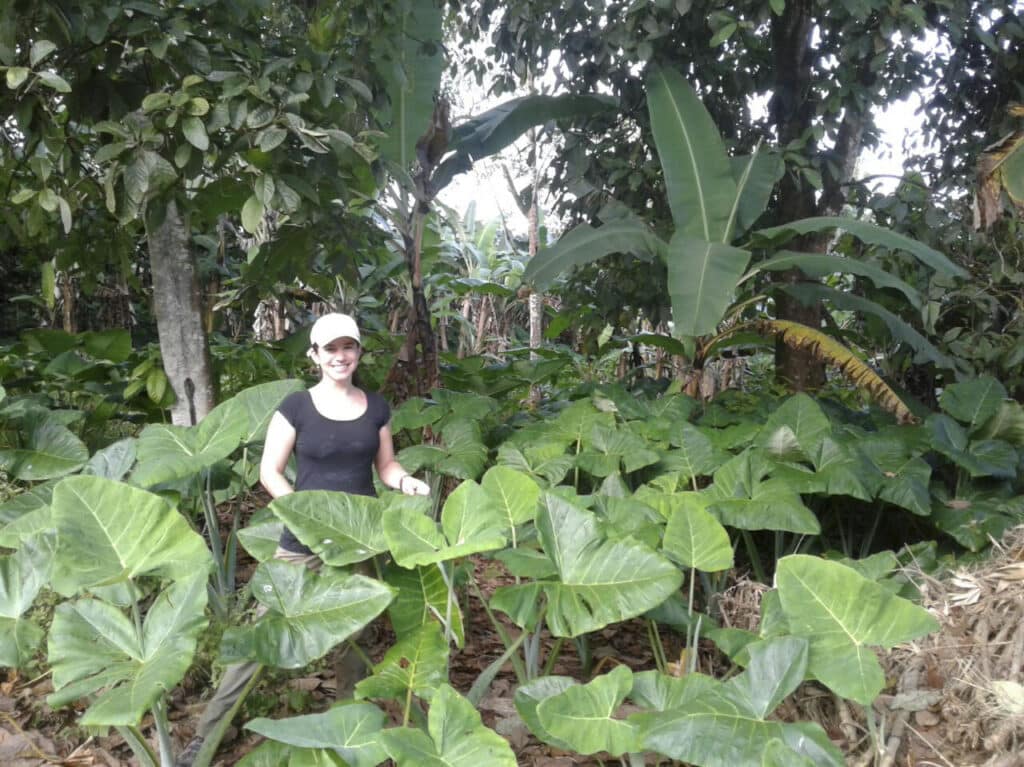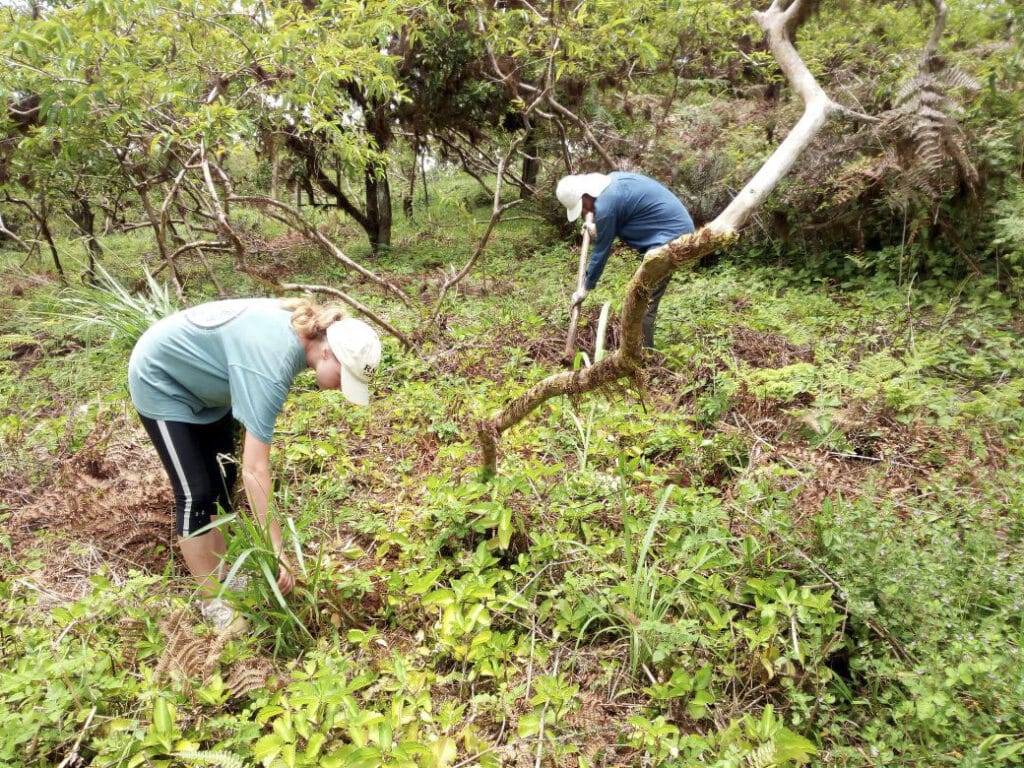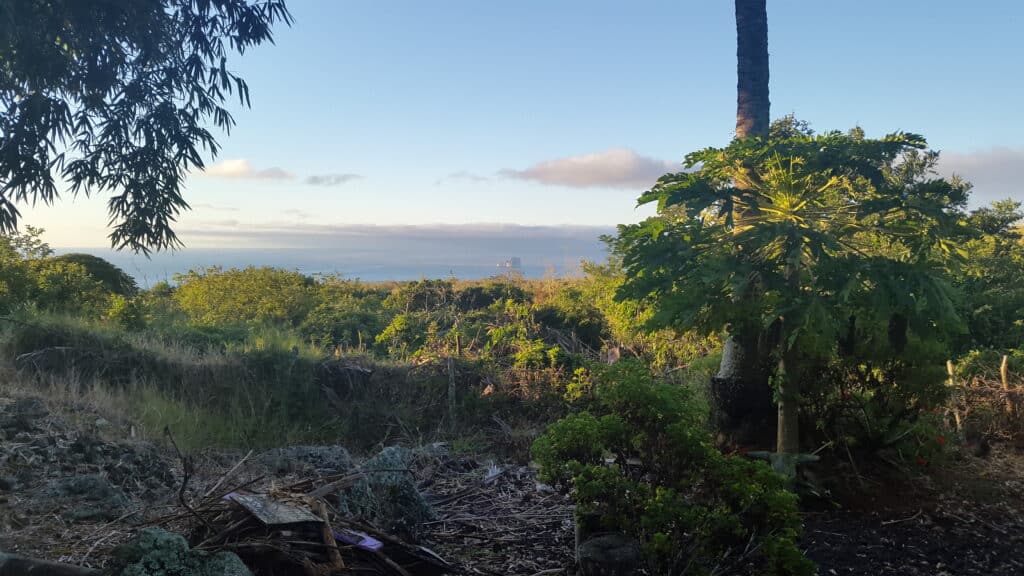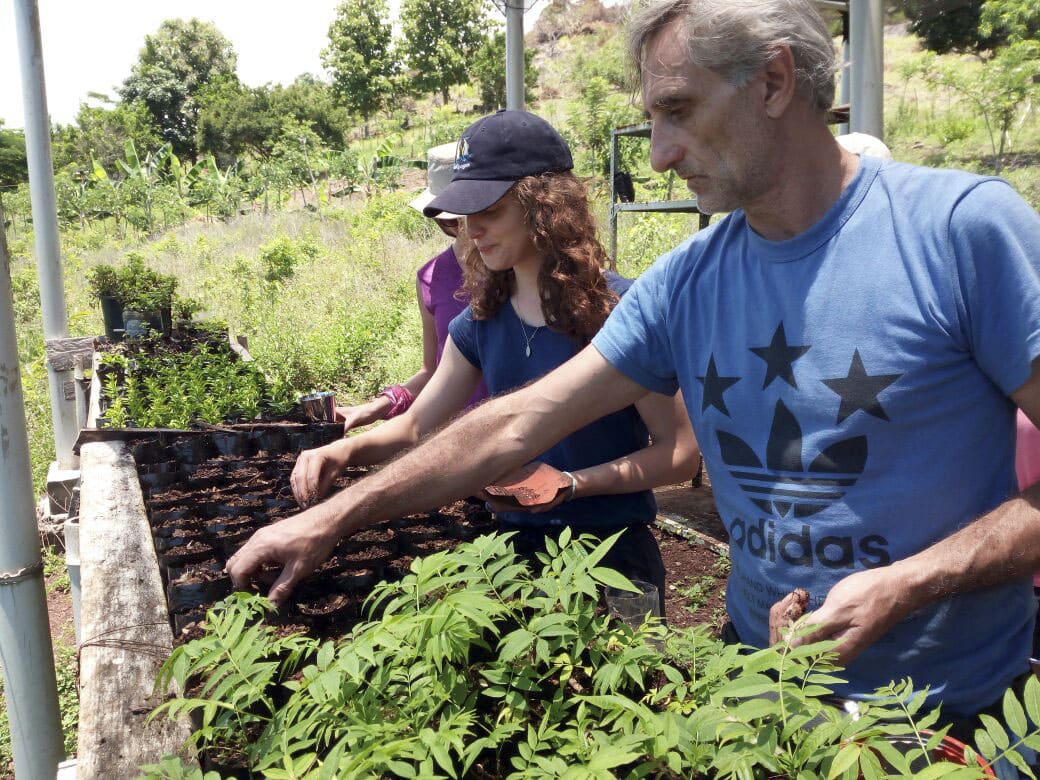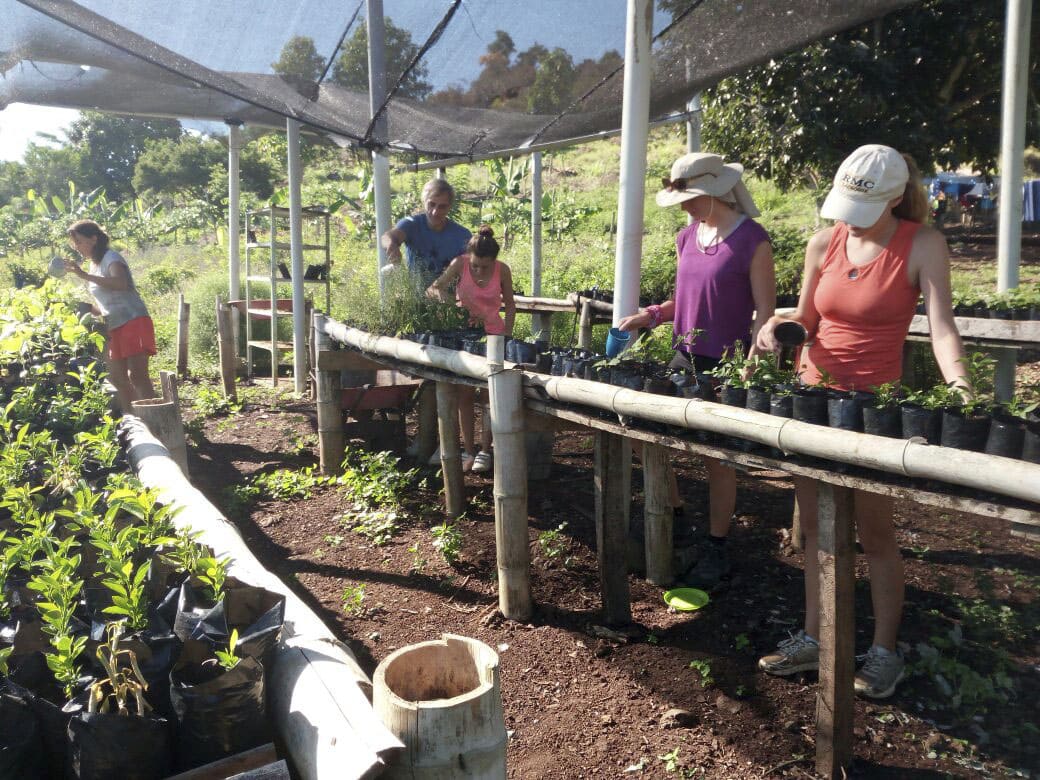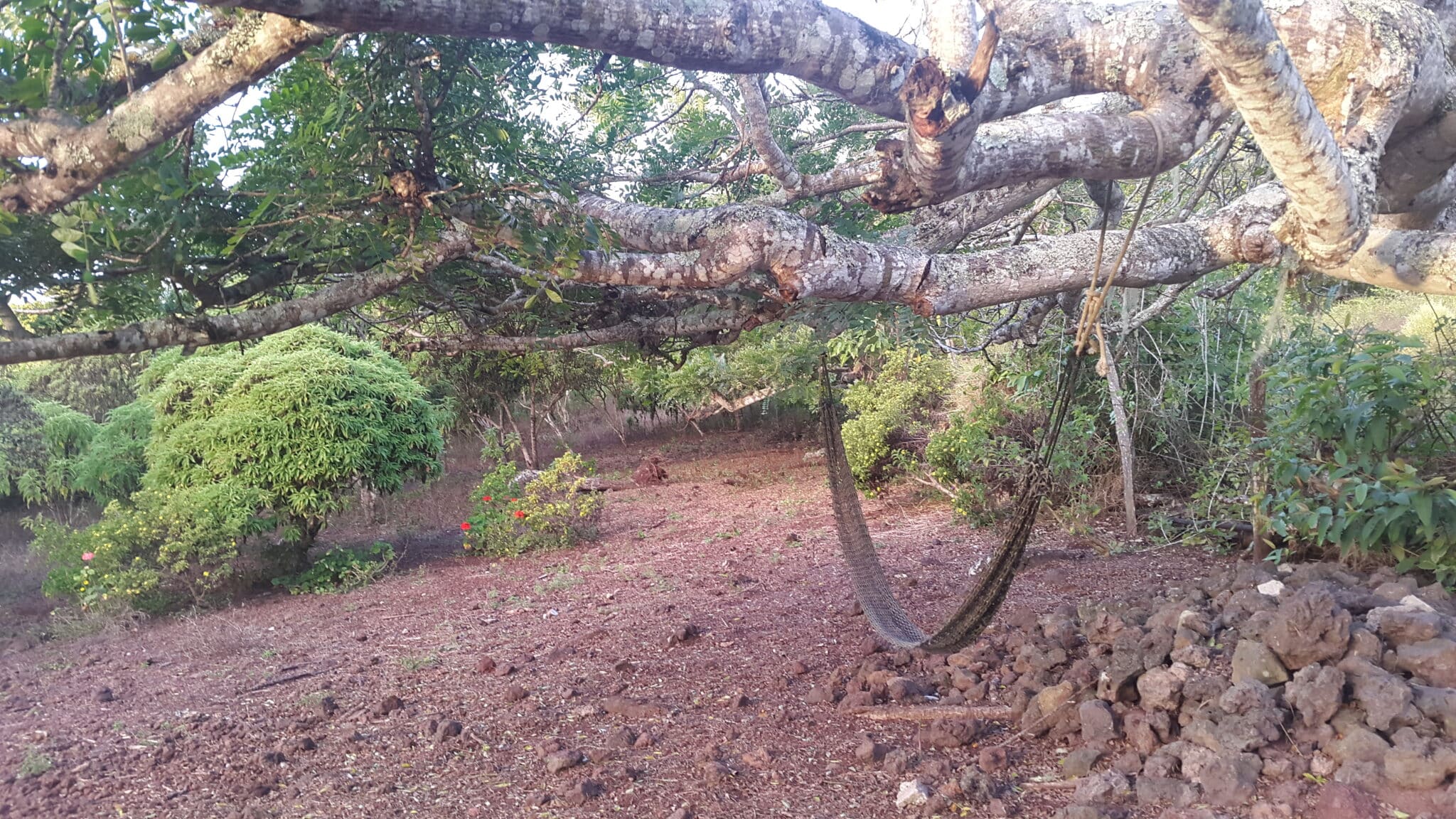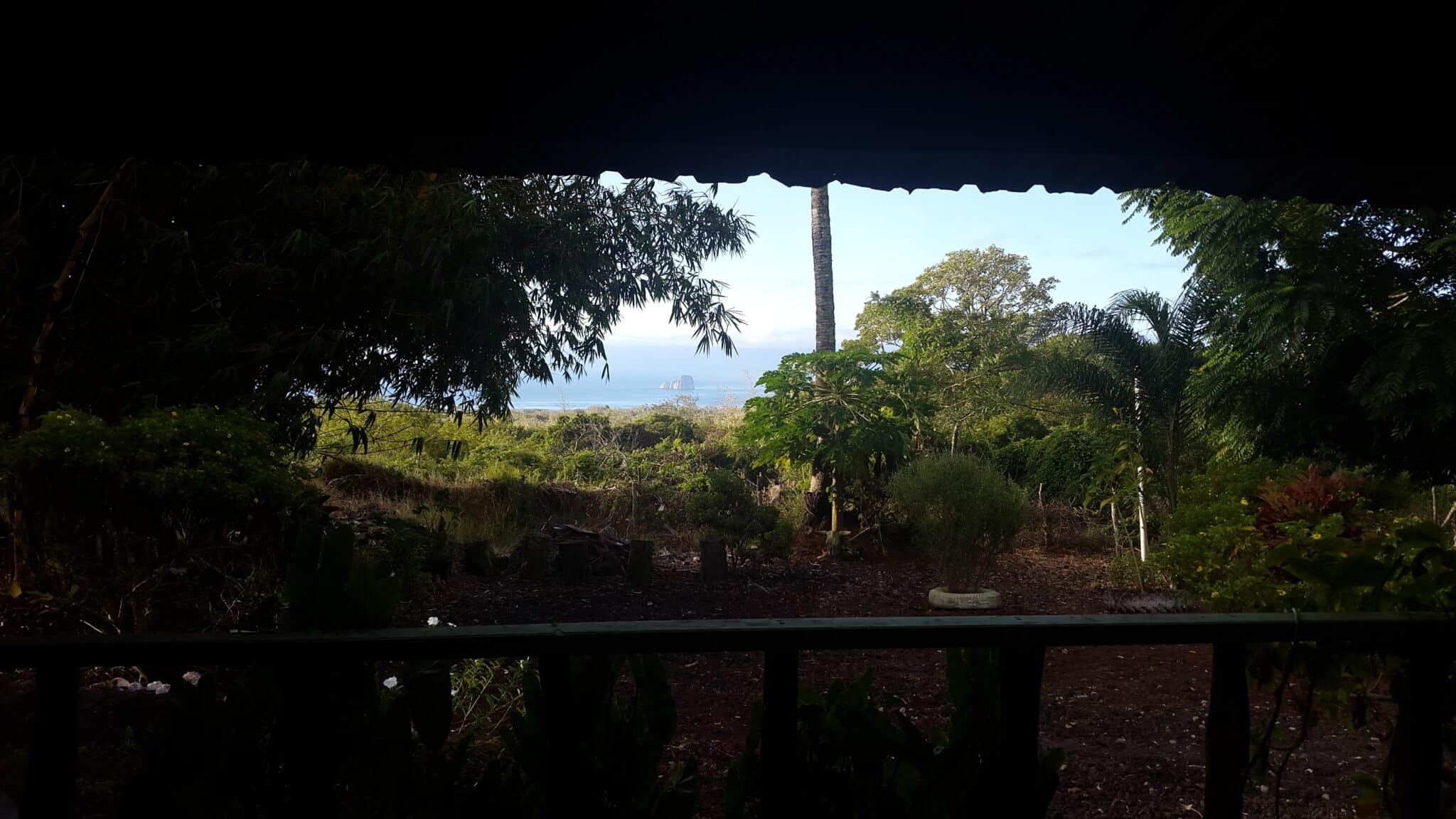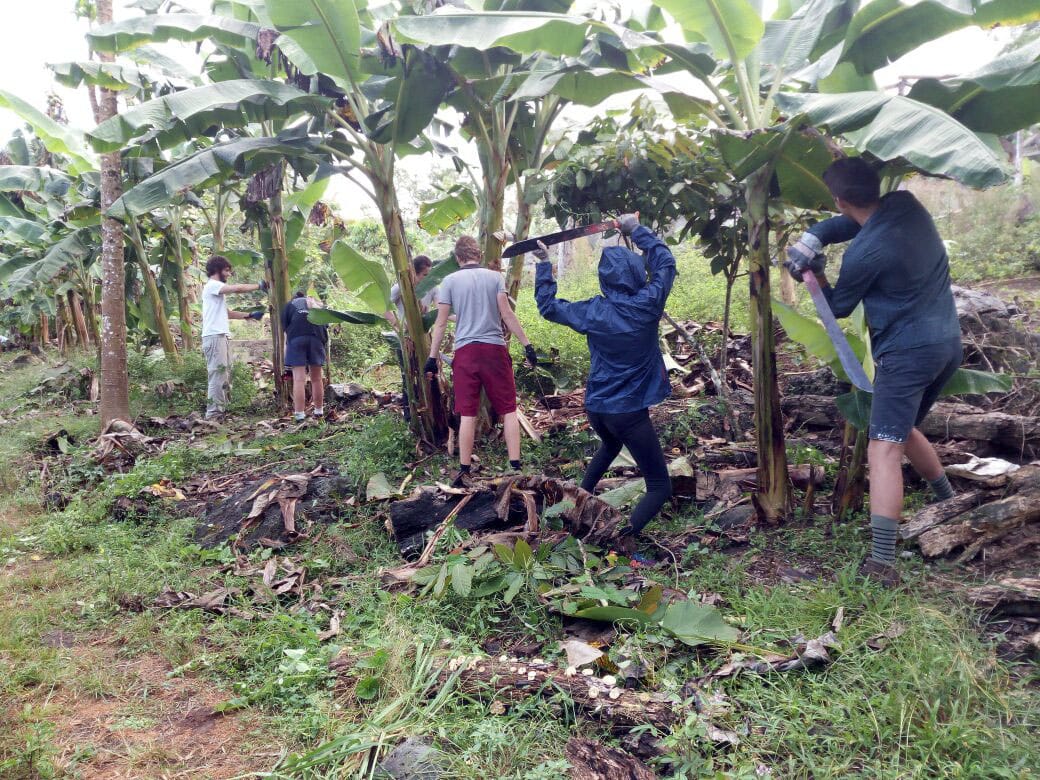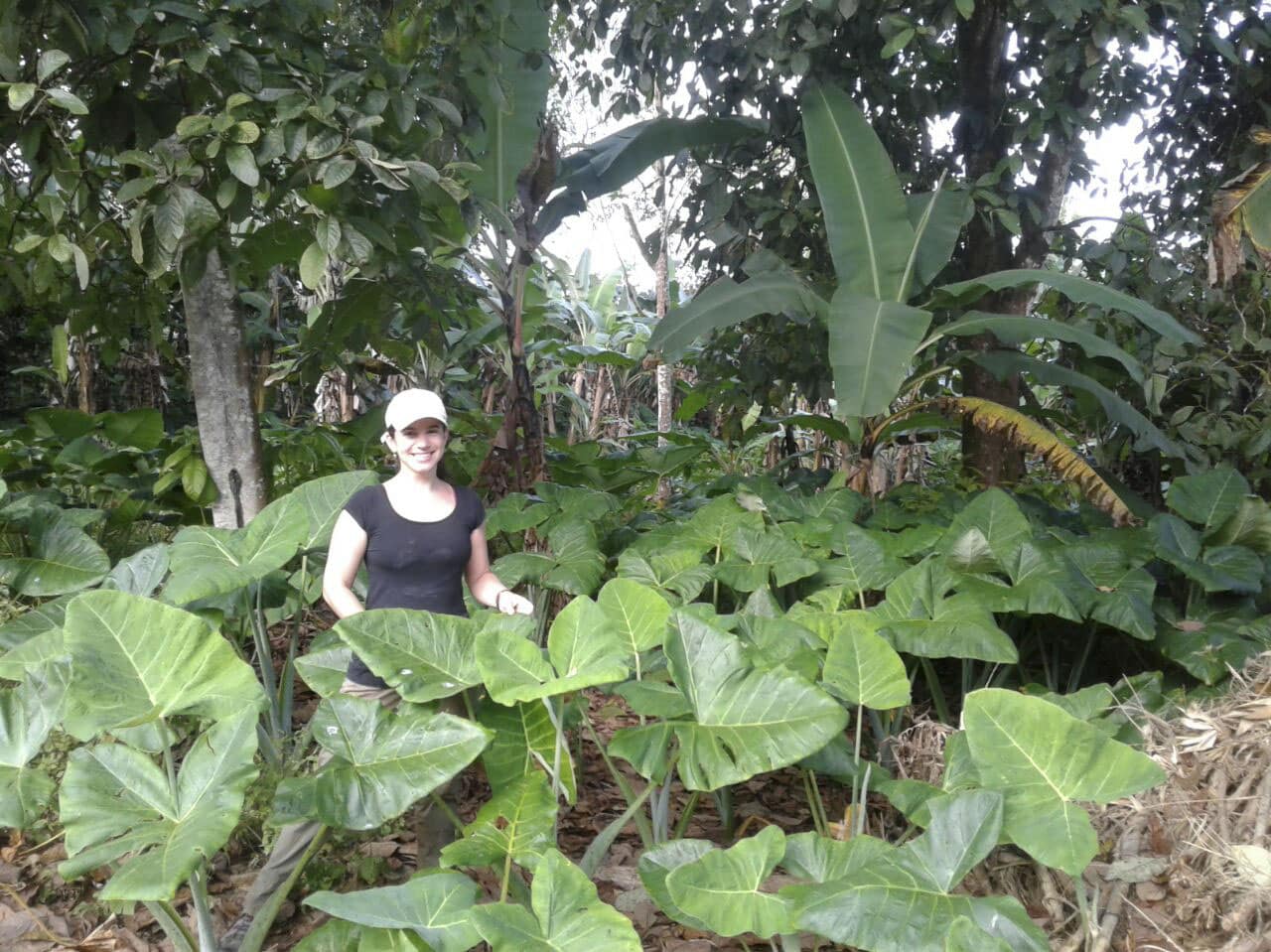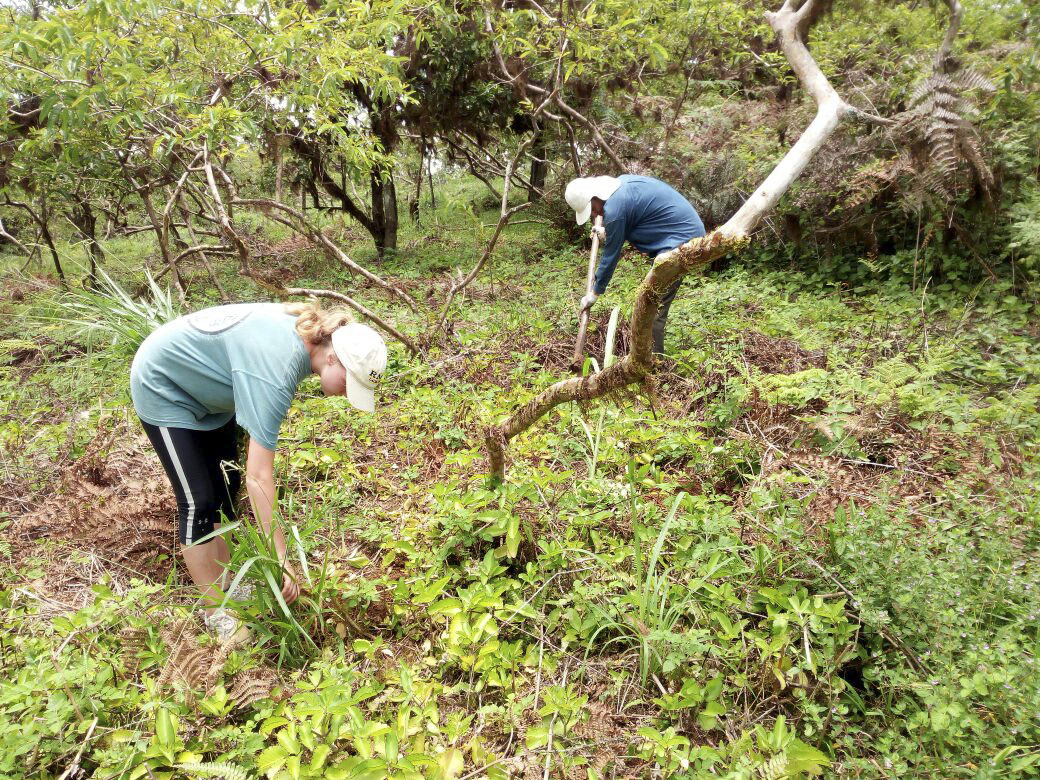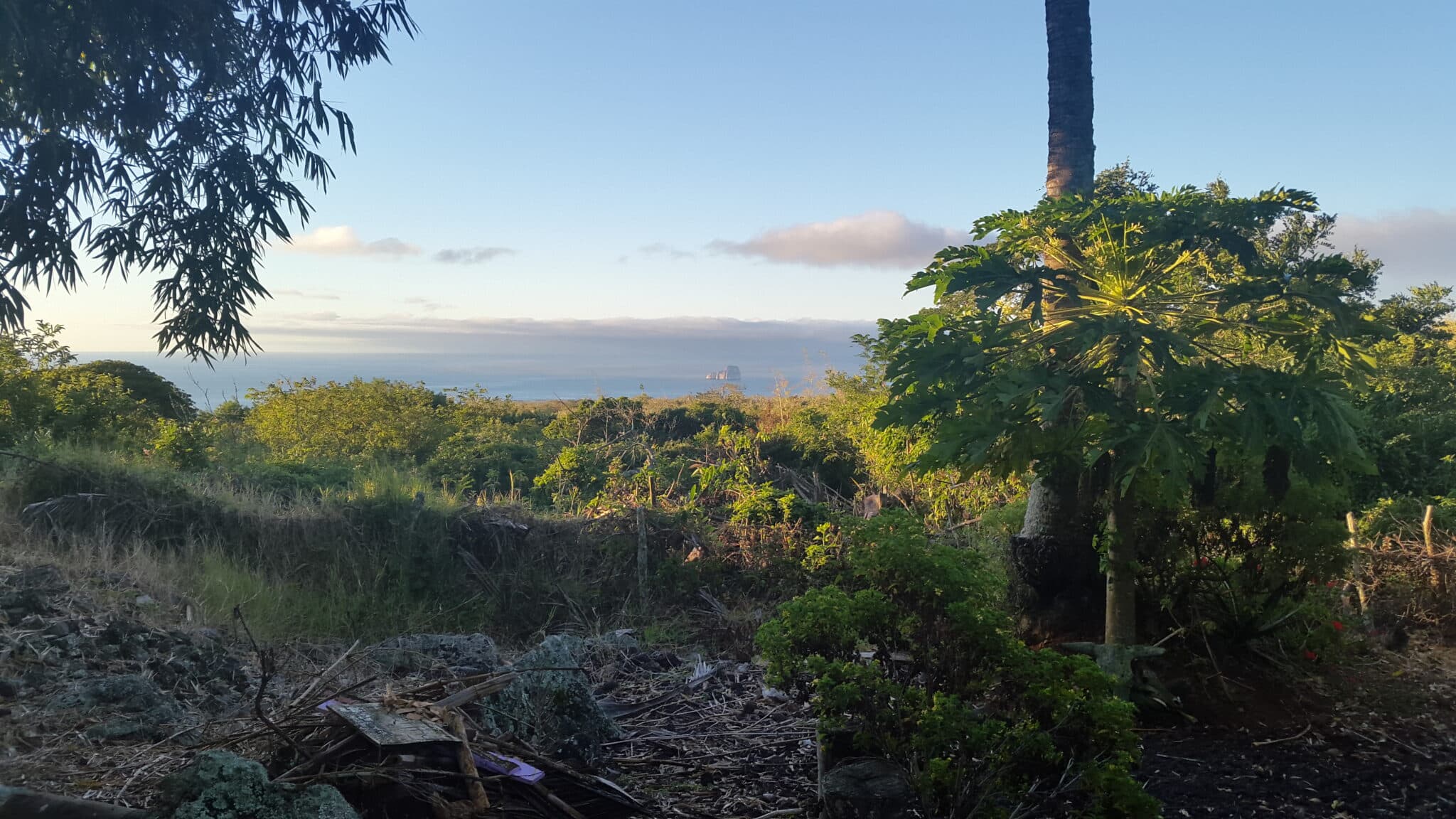Engagez-vous dans un séjour en écovolontariat aux Galápagos, pour préserver un écosystème fragile et contribuer à la protection d’une flore et de d’une faune endémiques. Toutes les missions en Equateur ici.
Restauration de la flore endémique aux Galapagos
Partez aux Galápagos pour préserver un écosystème fragile et contribuer à la protection d’une flore et de d’une faune endémiques. Soyez plus qu’un simple touriste qui visite les îles Galápagos uniquement pour prendre des photos passionnantes ! Engagez-vous dans la vie des communautés locales et contribuez à l’éducation à l’environnement en tant qu’écovolontaire. Ce programme d’écovolontariat vous offre la possibilité de passer un long séjour sur les célèbres îles Galápagos.
Plus de 500 espèces endémiques sur l’île de San Cristobal
L’île de San Cristobal est située à environ 960 kilomètres du continent sud américain, dans le Pacifique. Elle abrite environ 500 espèces de plantes endémiques, en plus de plus de 700 espèces introduites. Une biodiversité qui est le résultat de l’intersection des courants de Humboldt, de Cromwell et de Panama.
Ces dernières décennies, le taux de natalité et le nombre de touristes aux îles Galápagos ont augmenté rapidement. Ceci a eu pour conséquence une augmentation de la demande en nourriture et le développement des terres agricoles au détriment de la flore endémique.
Importation de plante endémiques
Comme les îles Galápagos n’étaient pas en mesure de produire suffisamment pour répondre à la demande croissante en denrées alimentaires, le gouvernement n’a eu d’autre choix que d’autoriser les importations d’aliment frais en provenance du continent. Ceci a eu des conséquences désastreuses. En effet, l’arrivée de nouveau produits agricoles a apporté avec elle des espèces non endémiques qui se sont rapidement propagées, ainsi que des parasites qui détruisent pour la faune et la flore indigènes de l’île.
La lutte contre la propagation de ces espèces est une composante essentielle du projet de volontariat sur l’île des Galápagos afin de préserver la faune et la flore indigènes. Le projet utilise une variété de stratégies pour soutenir ces efforts.
- Élimination des plantes importées
- Restauration de la flore endémique
- Encouragement d’un mode de vie durable
- Éducation de la population
- Travail avec la communauté locale (par exemple, projets de construction, éducation à l’environnement, cours d’anglais, formation à l’informatique, etc.)
Les volontaires séjournent dans une hacienda écologique
Grâce à ce séjour en écovolontariat, vous aurez une occasion unique de découvrir les Galápagos et de protéger ces îles mythiques sur le plan de la biodiversité. Vous séjournerez au sein d’une hacienda qui gère une exploitation agricole écologique de 30 hectares située sur les terres du parc national des Galápagos.
Votre action consistera à enlever des plantes non endémiques sur les terres de l’hacienda. L’introduction d’espèces végétales non indigènes a eu un impact négatif sur la flore de la région, et ce projet vise à en atténuer les effets. Les résultats de l’action des précédents volontaires sont significatifs. Les plantes invasives ont été soigneusement éliminées et les plantes indigènes ont été cultivées dans des serres avant d’être plantées à l’extérieur. Il vous sera également proposé des actions d’éducation à l’environnement.
Le tâches confiées aux écovolontaires
Les tâches du volontaire sont variées et principalement axées sur la reforestation, la recherche et le service à la communauté. Voici quelques tâches potentielles :
- Éradication des plantes importées (Mora, Guayaba et Superroza)
- Boisement avec des plantes indigènes
- Travail dans la serre et les jardins (semis de plantes indigènes / plantation de fruits et légumes)
- Soutien à la communauté locale (peinture des écoles, nettoyage des plages et des parcs, etc.)
- Aide à l’enseignement de l’anglais, de l’informatique, du sport, etc.
Le travail est physique. Les journées commencent tôt avec un petit déjeuner copieux à 6h30 pour éviter que les gens ne travaillent trop pendant les heures chaudes de la journée. Après le travail de l’après-midi, les volontaires sont libres d’explorer l’île, de se détendre dans les hamacs, de faire une sieste ou de se promener dans le port. Les week-ends sont libres.
nota Bene : les tâches peuvent varier. Elles dépendent de facteurs tels que le nombre de volontaires, la météo, la saison, les besoins actuels du projet, ainsi que la motivation personnelle. Il se peut que chaque bénévole ne participe pas pleinement à toutes ces tâches.
Dates
- Toute l’année 2 semaines minimum
Tarifs
- Frais dossier : 150 €
- Coût du programme : 1.295 € (pour un séjour minimum de 2 semaines + 1 jour)
- Semaine supplémentaire : 375 €
Nota Bene : Les semaines complètes sont toujours facturées pour le projet du lundi au dimanche. Veuillez toujours ajouter une nuit à Quito pour la réunion d’introduction.
Inclus dans le tarif
- Chambre partagée dans la Maison des Volontaires
- Petit-déjeuner, déjeuner, dîner
- Accueil à l’aéroport de Quito et 1 nuit à Quito
- Réunion de présentation à Quito
- Dépose à l’aéroport de Quito pour le vol vers les îles Galápagos
- Accueil à l’aéroport sur l’île de San Cristobal
- Délivrance du permis de séjour aux îles Galápagos
- Permission de séjourner aux Galápagos en tant que volontaire
- Conseils professionnels en anglais
- Traduction de vos documents de candidature
- Stage de bénévolat en Équateur
- Soutien anglophone dans le pays
- Manuel Équateur
- Guide interculturel
- Numéro d’urgence 24/7
- Informations sur une assurance voyage adaptée
- Certificat de participation
Non inclus dans le tarif
- Billets d’avion
- Assurance voyage
Hébergement
Les volontaires vivent ensemble dans la Maison des Volontaires de l’Hacienda. La pension complète avec 3 repas par jour est incluse. Des plats végétariens/végétaliens peuvent être demandés.
Localisation
Les îles Galapagos sont un archipel composé de deux îles principales, dont San Cristobal. L’île possède un port, un aéroport, quelques petits villages et une petite ville. Le coin sud-ouest de l’île est l’endroit où se trouve Puerto Baquerizo Moreno, la capitale des Galapagos.
Climat
La température moyenne quotidienne est de 25 °C et reste constante tout au long de l’année.
Il existe plusieurs attractions touristiques à proximité de Puerto Baquerizo Moreno, notamment le Cerro Tijeretas, qui abrite une colonie d’élevage de frégates, et une statue de Charles Darwin, qui se dresse à l’endroit où le naturaliste a mis le pied pour la première fois sur les îles Galapagos, lors du deuxième voyage du HMS Beagle. A seulement dix minutes en bus de la ville, vous pourrez découvrir une colonie d’otaries. Deux sites de plongée à proximité sont accessibles en bateau grâce aux locaux qui proposent ces sorties.
Pendant votre temps libre, vous pourrez admirer les nombreux lions de mer, les crabes des falaises, les coquillages, les frégates, les moqueurs, les raies, les canards des Bahamas, les poules d’eau, les pinsons de Darwin, les pélicans bruns, les fous à pieds bleus et enfin les célèbres tortues géantes des Galapagos.
Tous les avis sur les missions South America Inside

L’agence partenaire
Le partenaire est une agence interculturelle fondée en 2003, par Marion, une Allemande installée au Chili. Marion s’est spécialisée dans l’organisation de voyages solidaires et participatifs, de séjours en écovolontariat, mais également de séjours linguistiques et de programmes éducatifs dans toute l’Amérique latine. Cette agence propose des mission au Chili, au Costa Rica, au Nicaragua, en Equateur… Que vous soyez étudiant, professionnel ou retraité, ses séjours s’adressent à ceux qui veulent vivre l’Amérique latine autrement qu’en simple touriste. Tous les séjours avec South America Inside

